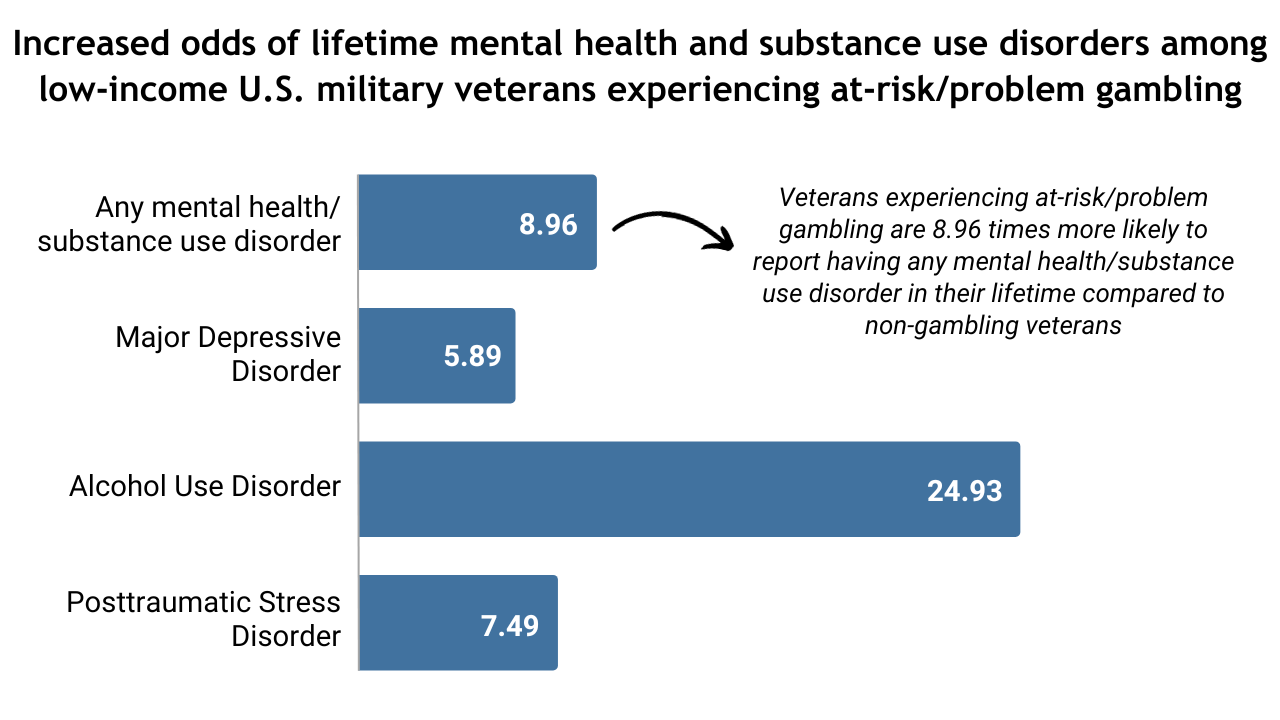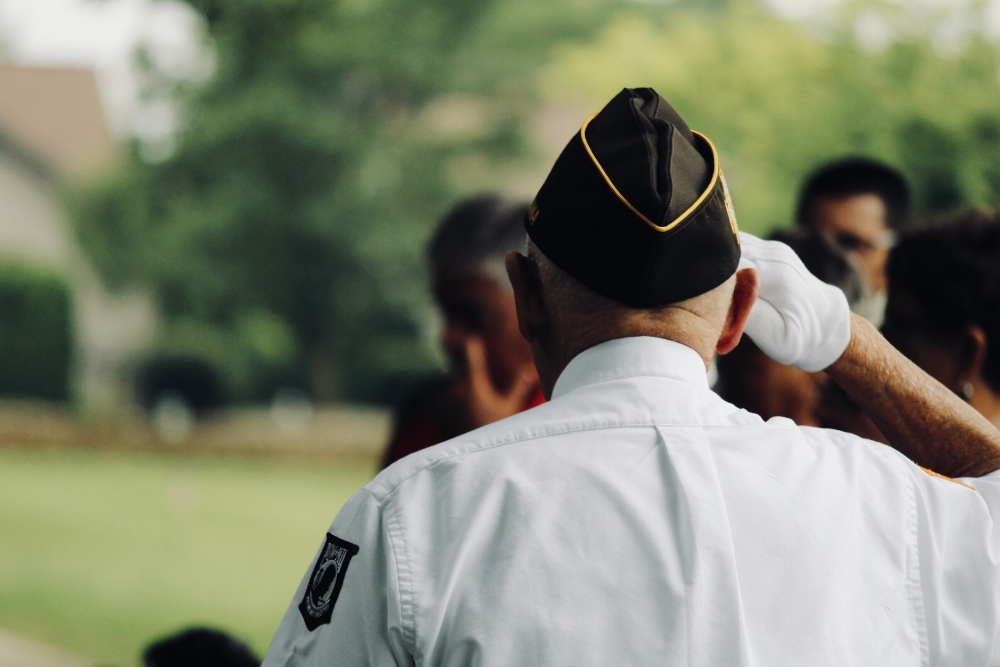Read the original article on The BASIS here.
By Kira Landauer, MPH
The prevalence of gambling problems is higher among U.S. military veterans when compared to the general civilian population. Aspects of military service — experiences of trauma, difficulty adjusting to life post-deployment, and low social support after returning from deployment — may contribute to the risk of problem gambling among veterans. This week, The WAGER reviews a study by Elina A. Stefanovics and colleagues that examined the associations between recreational gambling and at-risk/problem gambling, and homelessness and mental health/substance use disorders among low-income U.S. military veterans.
What were the research questions?
What is the prevalence of recreational gambling and at-risk/problem gambling among low-income U.S. military veterans? What are the associations between gambling status and physical health, mental health and substance use disorders, and homelessness?
What did the researchers do?
The researchers analyzed survey data from a subset of 781 veterans who completed the National Veteran Homeless and Other Poverty Experiences study. Eligible participants served on active duty in the U.S. Armed Forces and lived in a household under 300% of the federal poverty level in 2021. Study participants reported past-year gambling and were screened for at-risk/problem gambling (i.e., ARPG). They were then categorized into three groups: non-gambling; recreational gambling (i.e., past-year gambling with a negative gambling screen); and ARPG (i.e., past-year gambling with a positive gambling screen).
Participants were also asked about their experiences with homelessness, their income and other financial measures (e.g., debt), their physical health, and their history of mental health and substance use (including treatment). The researchers examined how these measures were associated with gambling group membership.
What did they find?
Nearly one-quarter of the low-income veterans surveyed gambled recreationally, and 6.7% screened positive for ARPG. Individuals in the ARPG group were more likely to be younger and less likely to be White. Compared to non-gambling, ARPG was associated with poorer physical health and current and lifetime mental health and substance use disorders (see Figure). Veterans in the recreational gambling group were more likely to have a current drug use disorder compared to the non-gambling group. ARPG group members were five times as likely to have ever received mental health or substance use treatment and three times as likely to report current psychiatric medication use relative to the non-gambling group. They were also more likely to report shame and perceived stigma as reasons for not seeking mental health treatment. Finally, members of the ARPG group were six times as likely to have a lifetime history of homelessness and five times as likely to report having student loans when compared to non-gambling participants.

Increased odds of lifetime mental health and substance use disorders among U.S military veterans experiencing at risk/problem gambling
Figure. Odds ratios of lifetime mental health and substance use disorders among low-income U.S. military veterans experiencing at-risk/problem gambling, compared to non-gambling veterans. Click image to enlarge.
Why do these findings matter?
This study found that about one-third of low-income U.S. military veterans engage in recreational gambling or are experiencing ARPG, and that ARPG is associated with poor physical health, current and lifetime mental health and substance use disorders, and homelessness. Tailored approaches to identifying and addressing ARPG in this population are needed. Routine screening for gambling-related problems could be implemented across VA primary care and behavioral health centers. Further, VA providers should be equipped to provide problem gambling treatment. Given the high rates of ARPG among veterans with a history of homelessness, shelter staff should be trained to identify ARPG and make appropriate referrals. Finally, veterans might benefit from increased services to help address factors associated with ARPG, such as resources on adjusting to post-deployment life.
Every study has limitations. What are the limitations of this study?
This study utilized a cross-sectional design, so causality between variables cannot be determined. In other words, we cannot determine whether ARPG affected experiences of homelessness among veterans, or vice versa. The findings from this study might not be generalizable to all U.S. veterans (e.g., higher-income or reserve service veterans).
For more information:
Make the Connection is a resource for veterans looking to learn more about and change their gambling behavior. Do you think you or someone you know has a gambling problem? Visit the National Council on Problem Gambling for screening tools and resources. For additional resources, including gambling and self-help tools, visit our Addiction Resources page.
— Kira Landauer, MPH

